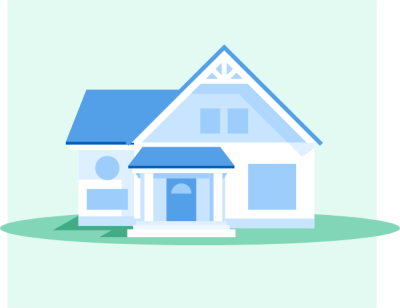Amortization Period: What It Is, and How It Compares to Mortgage Term




An amortization period is the length of time it should take to pay off your mortgage. For example, if you have a mortgage with a 25-year amortization, you’ll make your final mortgage payment at the end of the 25th year. Longer amortization periods result in lower monthly payments, but you’ll pay a higher overall amount over the life of the loan.
Amortization period vs. mortgage term
The terms “amortization period” and “mortgage term” describe distinct concepts. A mortgage term is the length of time you are locked into a mortgage contract. When a mortgage term is up, you renew your mortgage. A 30-year mortgage may consist of six different mortgage contracts, each with a five-year term.
Best Mortgage Rates in Canada
Compare Canada’s top mortgage lenders and brokers side-by-side and find out the best mortgage rates that will meet your need
How to choose an amortization period
An amortization period is the amount of time needed to pay off a mortgage in full.
The most common amortization period in Canada is 25 years, but that’s not the only option. There are tradeoffs to consider when choosing an amortization period that works best for you.
If you want… | …consider a: |
|---|---|
A lower monthly payment | Longer amortization period. |
To pay the least amount of interest over the life of the loan | Shorter amortization period. |
To maximize your borrowing power | Longer amortization period. |
To be mortgage free ASAP | Shorter amortization period. |
A mortgage with less than 20% down (also called an insured mortgage) | Amortization period of 25 years or less. There are exceptions: If you’re a first-time home buyer or if you’re buying a new build, you can get an insured mortgage with a 30-year amortization period. |
What an amortization schedule can tell you
An amortization schedule or table details every projected payment you will make over the life of your mortgage.
On an amortization schedule, you will find the following:
The amount of principal and interest paid over an entire year.
The principal paid for a specific payment.
The interest paid for a specific payment.
Remaining principal after each payment.

Some amortization schedules may also show extra payments you’ve made and projected payments and balances.
As you pay down the principal, you gain equity in your home.
» TRY OUR AMORTIZATION CALCULATOR: See how much you’ll pay over the life of your loan.
How mortgage terms and amortization periods work together
The typical homeowner has multiple mortgage terms over the life of their mortgage. At the end of each term, your remaining amortization will be shorter because you have spent the intervening months or years paying down the principal.
It’s important to strike a balance that fits your financial situation and addresses both your short-term and long-term needs. Selecting a mortgage can be a thorny and precarious thicket to navigate, so consult your mortgage broker if you have any specific questions.
Sources
NerdWallet writers are subject matter authorities who use primary, trustworthy sources to inform their work, including peer-reviewed studies, government websites, academic research and interviews with industry experts. All content is fact-checked for accuracy, timeliness and relevance. You can learn more about NerdWallet's high standards for journalism by reading our editorial guidelines.
- Government of Canada. Mortgage terms and amortization. Accessed Jan 15, 2025.
- RBC. Mortgage Amortization. Accessed Jan 15, 2025.
DIVE EVEN DEEPER

 Clay Jarvis
Clay Jarvis
 Clay Jarvis
Clay Jarvis
 Clay Jarvis
Clay Jarvis